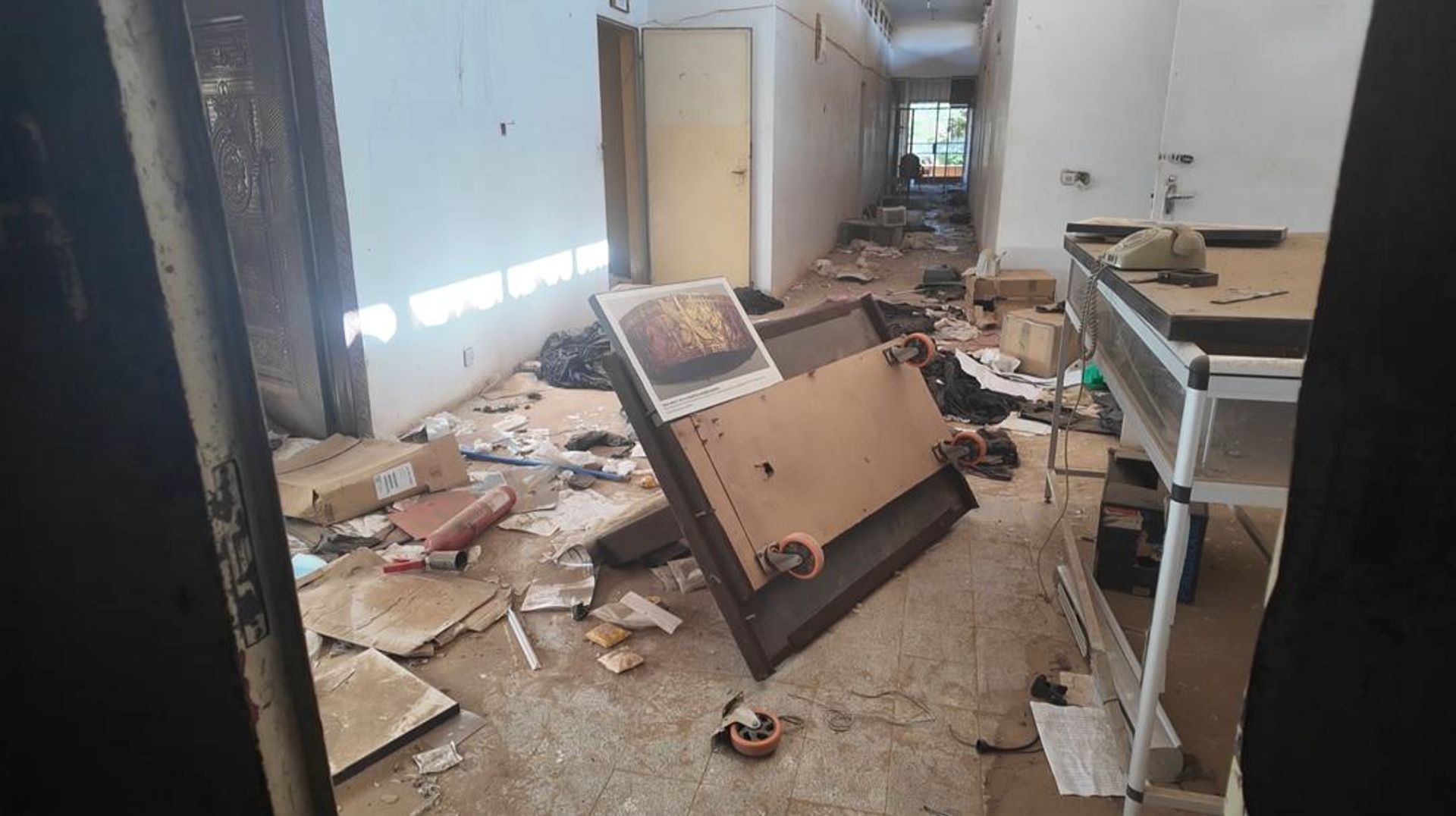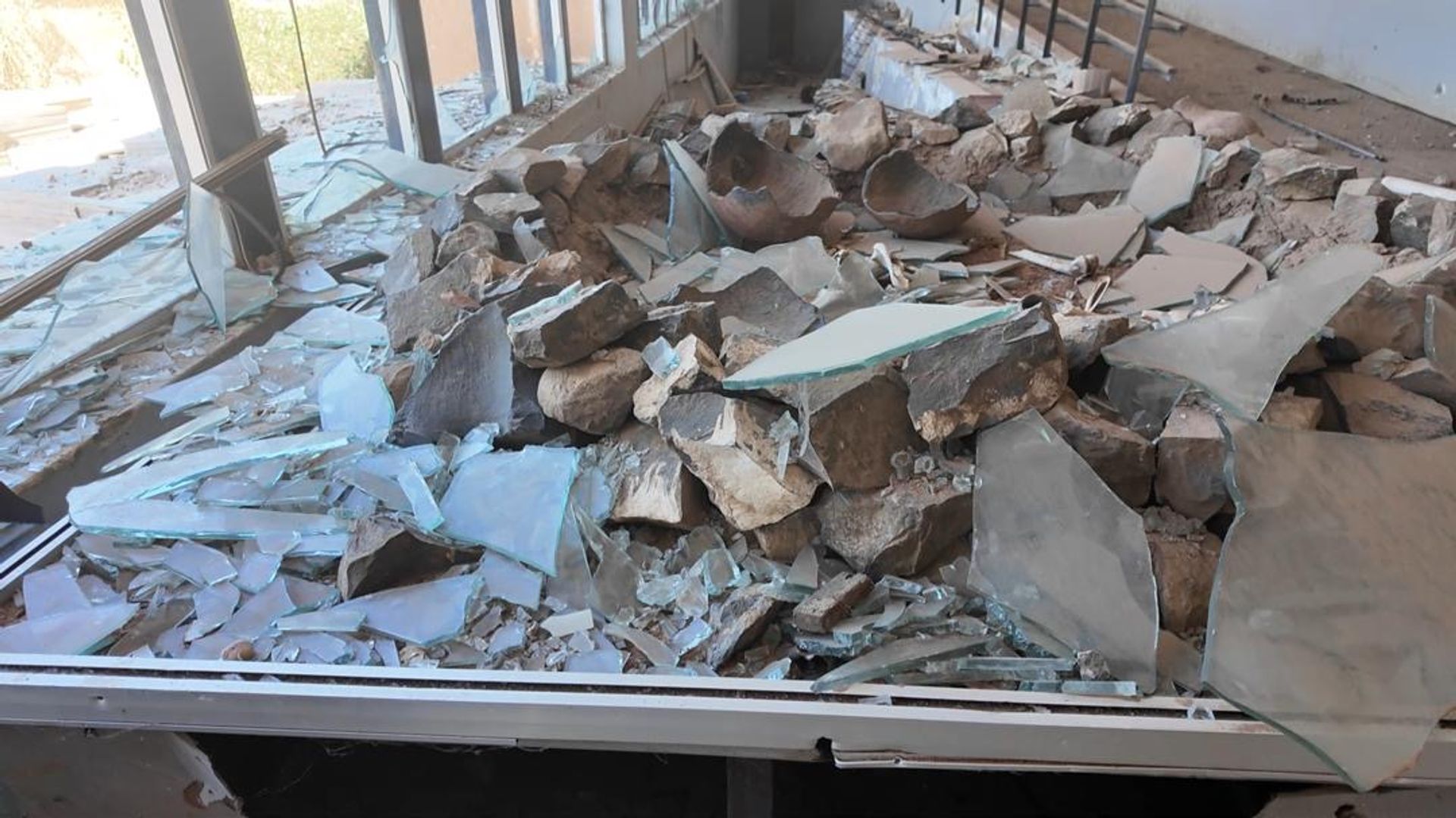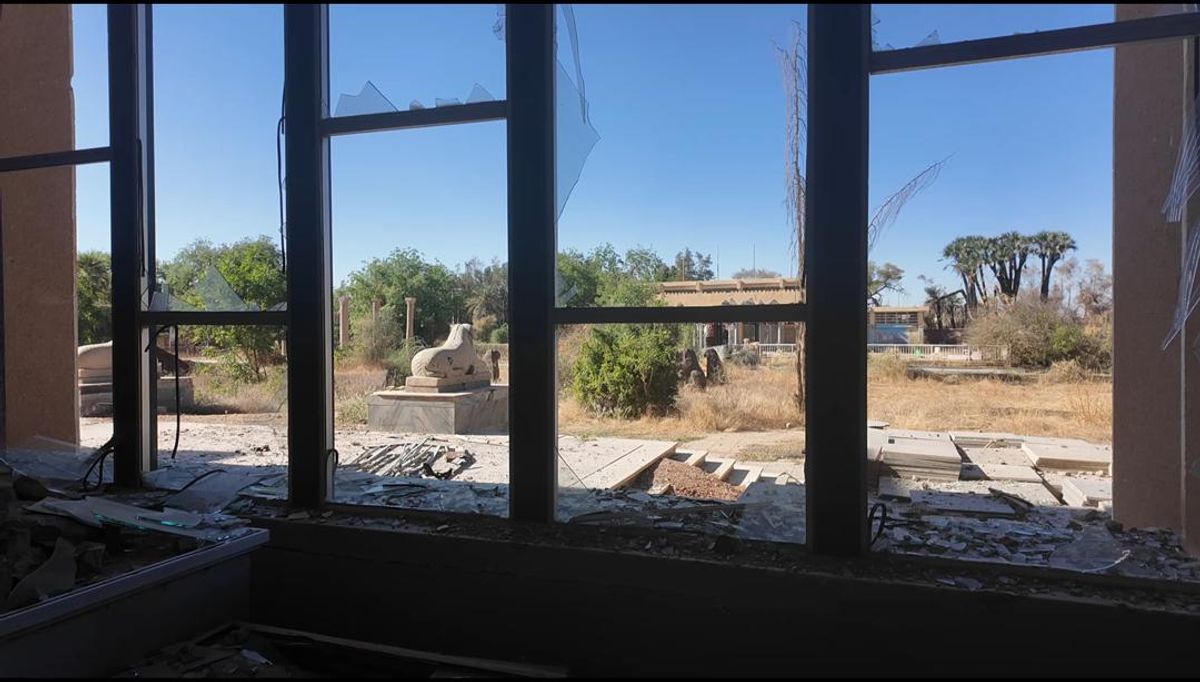Sudan’s National Museum, once the guardian of an invaluable collection of artefacts spanning thousands of years, has been ravaged by looting and severe destruction at the hands of the paramilitary Rapid Support Forces (RSF), according to initial assessments by the National Corporation for Antiquities and Museums (NCAM), the body responsible for preserving the country’s antiquities and archaeological sites.
The destruction is a result of a civil war between the RSF and the Sudanese Armed Forces (SAF), ongoing since April 2023, which has killed tens of thousands of people and displaced millions.
Images and videos of the devastated museum, which is located in the North African nation’s capital of Khartoum, began circulating online last week after the SAF regained control of key locations in the capital from the RSF. On 24 March, just days after the SAF retook the area, a NCAM team visited the museum to conduct an initial assessment and compile a report on the damage to the museum and its collection—the first evaluation of the site in nearly two years.
“It [the initial damage assessment report] was horrible, really horrible. I am very sad. We are crying,” Ikhlas Abdel Latif, the director of museums at NCAM and the head of its circulating artefacts unit, tells The Art Newspaper from Cairo. “We already knew that the museum would be damaged and looted, but not in the way we have seen in the report from our colleagues who entered the museum.” The initial report, she says, indicates a large portion of the collection—thousands of artefacts—has been taken.

NCAM staff have captured the extent of looting and destruction at the museum, which houses objects dating back thousands of years
Photo: National Corporation for Antiquities and Museums
Sudan’s National Museum housed one of the most significant archaeological collections in northern Africa, with artefacts from eras ranging from the distant Stone Age to the Islamic kingdoms, including items from the Funj Sultanate of Sennar (16th to 19th centuries). It presented Sudan’s evolving history via its rulers and religions, with exhibits including medieval Christian frescoes, Kushite statues, entire temple structures and mysterious Meroitic inscriptions.
Before the war, the museum was undergoing rehabilitation, and the collection had been packed in boxes and stored away, Latif says. “The [looters] took the boxes,” she says. The museum’s strongroom was also breached, and its entire archaeological gold collection stolen. Latif says a large storage space containing more 500,000 artefacts from across the country has also been ransacked and damaged. The ground team, she says, saw that some items had been thrown on the ground and crushed underfoot, seemingly as part of a deliberate attempt to destroy them.
“The [RSF] damaged our identity and our history. They want to erase our history and the demographics of Sudan,” she says.
An incalculable loss
Gamal Mohamed Zein Elabdeen, the director of finance and administration affairs at NCAM, was part of the team that visited the museum, and emphasized the extent of the destruction to The Art Newspaper. “When I entered the museum, I was shocked by the extent of the destruction, which was immediately visible,” he says.
He describes the building’s structure as heavily damaged: its glass facade shattered, walls bearing marks from rocket strikes, and a large number of sniper casings scattered across the grounds. Elabdeen also notes that the larger storage facility was struck by a missile, damaging its structure and artefacts in at least one container.
Elabdeen highlights that even the museum’s bioarcheological lab, where ancient human remains were stored and analysed, was not spared, with some mummies “removed from the lab and thrown outside.” In other areas of the museum, containers holding items and tools belonging to foreign missions working with the museum were opened and set on fire, he says.

Some artefacts were destroyed during the raids
Photo: National Corporation for Antiquities and Museums
The devastation left him with a “bitter feeling,” he adds. He references the agony of witnessing the loss of objects that had been accumulated and preserved by generations. “This heritage is irreplaceable, no amount of wealth could bring it back. To witness this loss and be unable to do anything about it is truly painful,” he says.
Latif says the NCAM team is working on a more comprehensive report, which will be circulated at a later date. “We are determined to get our collection back,” she says. She urges the international community not to trade or deal in Sudanese artefacts and to contact the officials if they come across any information about the museum’s collection. “We need the international community to help us rebuild and rehabilitate the museum,” she adds.
Fear first spread among Sudan’s heritage professionals about the fate of the museum a few weeks into the civil war, when a video surfaced showing RSF militants boasting that they had found corpses of people killed by followers of the previous regime—apparently unaware they were actually mummies dating back more than 5,000 years. Several months later, reports emerged of trucks being loaded with items from the museum and driving towards the border. With Khartoum under RSF control, however, NCAM was unable to obtain information on the scale of the looting or the extent of the damage until now.
The war in Sudan began when the SAF and the RSF—once allies in toppling long-time dictator Omar al-Bashir in 2019—turned on each other in a violent battle for control. The resulting conflict has claimed tens of thousands of lives, displaced over 12 million people, and plunged the country into what a top UN aid official described in March as the “largest and the most devastating humanitarian crisis in the world”. According to the UN, more than 30 million people expected to need aid this year, including 16 million children.
US lawmakers have accused the United Arab Emirates (UAE) of supplying weapons and support to the RSF, prolonging the war—claims the UAE denies. In January 2025, the US imposed sanctions on the RSF, including seven companies it owns in the UAE, accusing the group of committing genocide. In remarks published by Reuters, RSF rejected the measures and stated: “America previously punished the great African freedom fighter Nelson Mandela, which was wrong. Today, it is rewarding those who started the war by punishing [the RSF’s leader] General Mohamed Hamdan Dagalo, which is also wrong.”
The UN has accused both the SAF and the RSF of committing “harrowing human rights violations and international crimes”.


